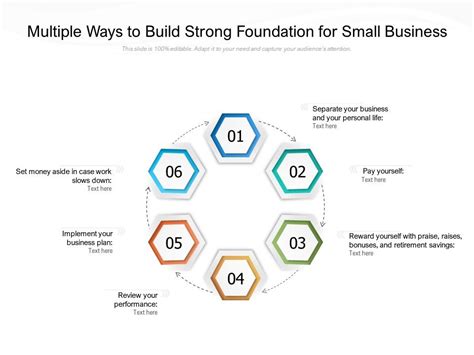Marketing Science: Build a Strong Foundation
Marketing, at its core, is a science. While creativity and intuition play vital roles, truly successful marketing relies on a robust foundation built on data, analysis, and a deep understanding of consumer behavior. This article explores the key elements of building that foundation, transforming your marketing efforts from guesswork to strategic precision.
What is Marketing Science?
Marketing science isn't about replacing creative flair; it's about enhancing it. It's the application of scientific methods – including statistical modeling, experimentation, and data analysis – to understand and optimize marketing campaigns. This allows marketers to move beyond intuition and anecdotal evidence, making data-driven decisions that deliver tangible results.
Key Pillars of a Strong Marketing Science Foundation
Several crucial elements contribute to building a strong foundation in marketing science:
1. Data Collection and Management: The Cornerstone
Effective marketing science begins with robust data collection. This involves gathering information from various sources, including:
- CRM systems: Track customer interactions, purchase history, and demographics.
- Website analytics: Monitor website traffic, user behavior, and conversion rates (Google Analytics is a prime example).
- Social media analytics: Analyze engagement, reach, and sentiment on different platforms.
- Marketing automation platforms: Track email open rates, click-through rates, and other email marketing metrics.
- Surveys and feedback forms: Directly gather customer opinions and preferences.
Once collected, this data needs careful management. Data cleaning, organization, and storage are critical for accurate analysis and insightful decision-making. Consider investing in a robust data warehouse or cloud-based solution.
2. Analytical Skills: Deciphering the Data
Raw data is meaningless without the ability to analyze it. This requires proficiency in statistical methods and data visualization tools. Understanding key metrics like:
- Customer Lifetime Value (CLTV): Predicts the total revenue a customer will generate over their relationship with your business.
- Return on Investment (ROI): Measures the effectiveness of your marketing campaigns in generating profit.
- Conversion rates: Tracks the percentage of visitors who complete a desired action (e.g., purchase, sign-up).
is crucial. Developing these analytical skills, or hiring individuals with them, is non-negotiable.
3. Experimentation and A/B Testing: The Scientific Method in Action
Marketing science embraces experimentation. A/B testing, in particular, is a powerful tool for determining what works best. By testing different variations of marketing materials (e.g., headlines, images, calls to action) and analyzing the results, you can optimize your campaigns for maximum impact.
4. Attribution Modeling: Understanding What Works
Attribution modeling helps determine which marketing channels are most effective in driving conversions. Different models (e.g., last-click, multi-touch) offer various perspectives. Choosing the right model depends on your business goals and the complexity of your marketing activities.
5. Predictive Modeling: Forecasting Future Outcomes
Predictive modeling uses historical data to forecast future trends and customer behavior. This can be invaluable for proactive marketing planning, resource allocation, and anticipating market shifts.
How Marketing Science Improves Your Bottom Line
Implementing a strong marketing science foundation leads to several tangible benefits:
- Increased ROI: Data-driven decisions minimize wasted resources and maximize campaign effectiveness.
- Improved Customer Acquisition: Better understanding of customer behavior leads to more targeted and effective acquisition strategies.
- Enhanced Customer Retention: Personalized experiences, based on data analysis, improve customer loyalty and lifetime value.
- Optimized Marketing Spend: Resource allocation becomes more efficient, prioritizing the most effective channels and strategies.
Frequently Asked Questions
What are the best tools for marketing science?
Many tools support marketing science, including Google Analytics, Adobe Analytics, marketing automation platforms (like HubSpot or Marketo), and statistical software packages (like R or Python). The best tools will depend on your specific needs and budget.
How much does it cost to implement marketing science?
The cost varies depending on the complexity of your needs and the resources you already have. It could involve investments in software, data storage, and potentially hiring skilled analysts.
How long does it take to see results from implementing marketing science?
The time to see results depends on the scale and scope of your implementation. You might see initial improvements within months, but significant changes often require a sustained effort over time.
By embracing the principles of marketing science, businesses can transform their marketing efforts from guesswork to a precisely targeted, data-driven system that delivers measurable results and a significant return on investment. Building a strong foundation is essential, and the journey is well worth the effort.

